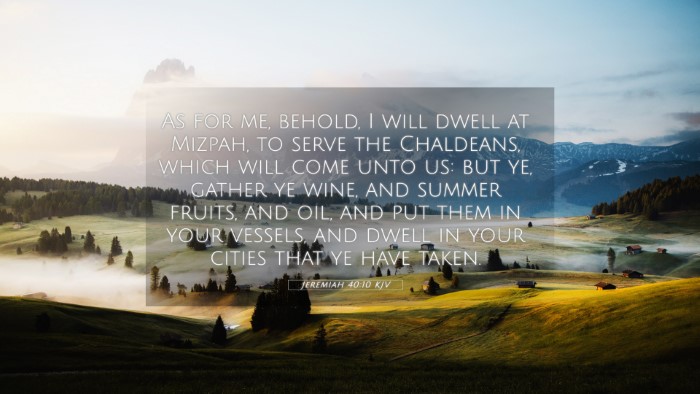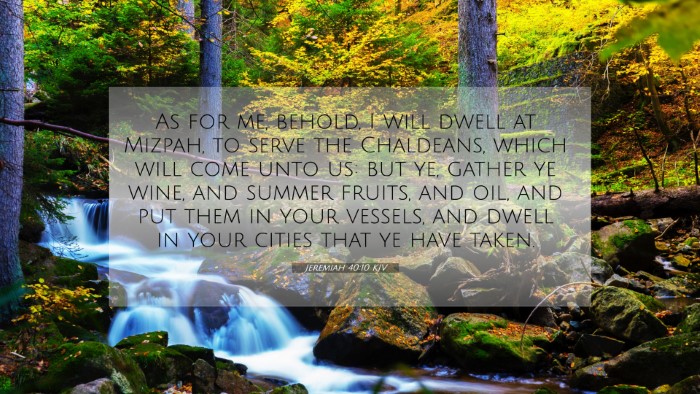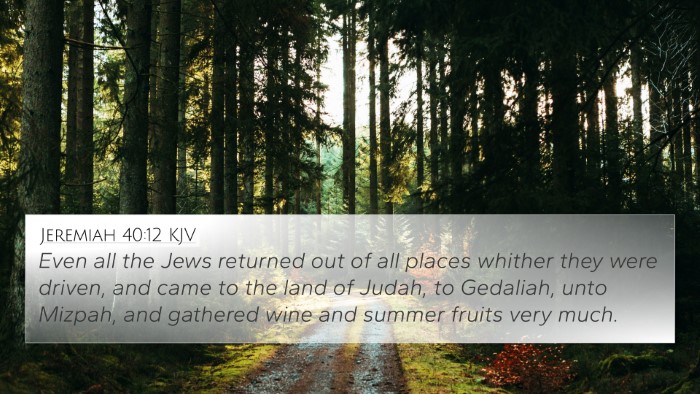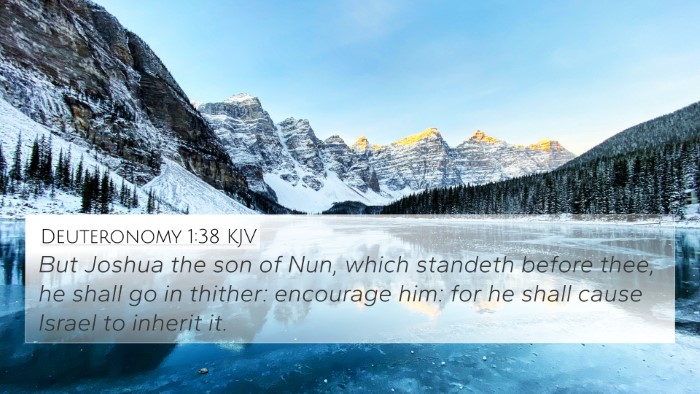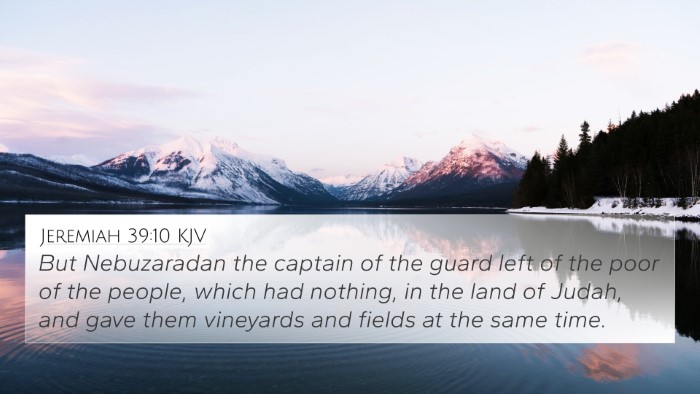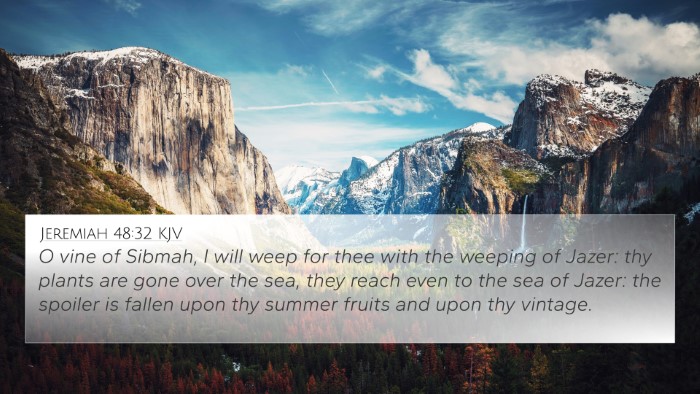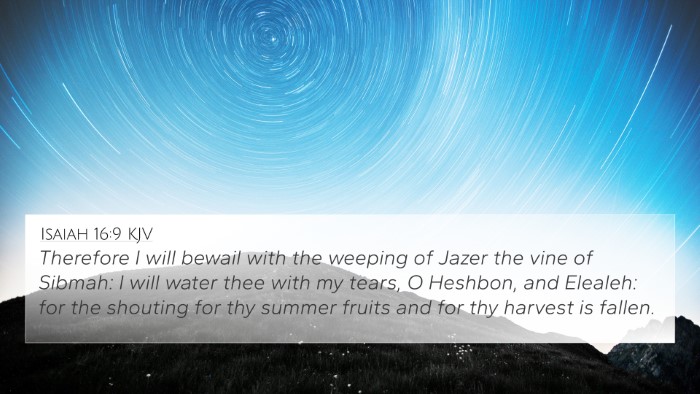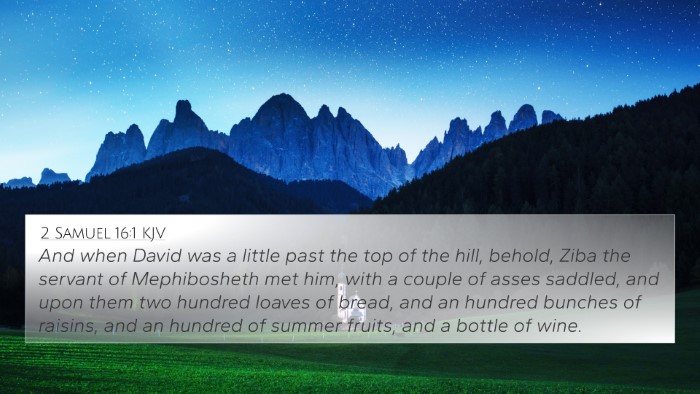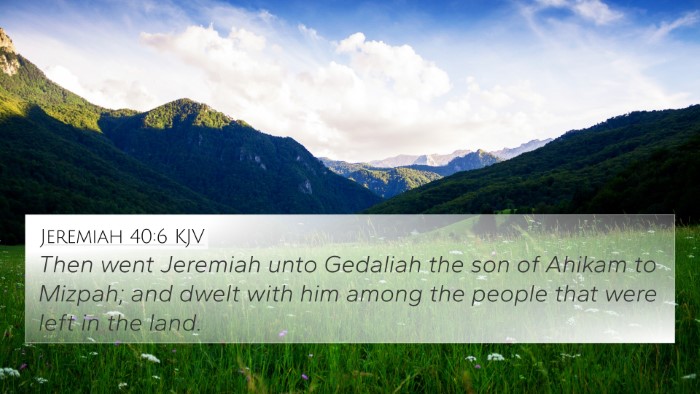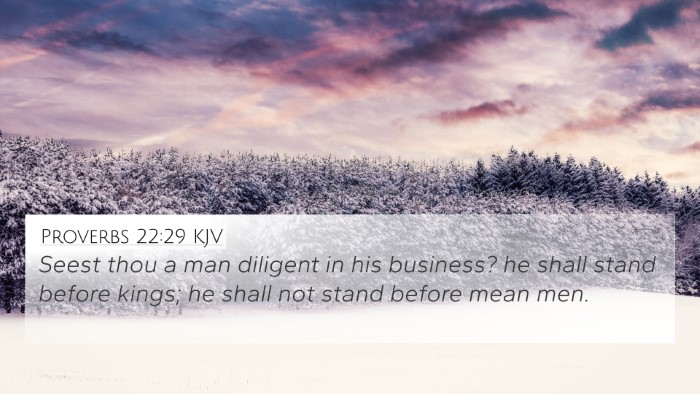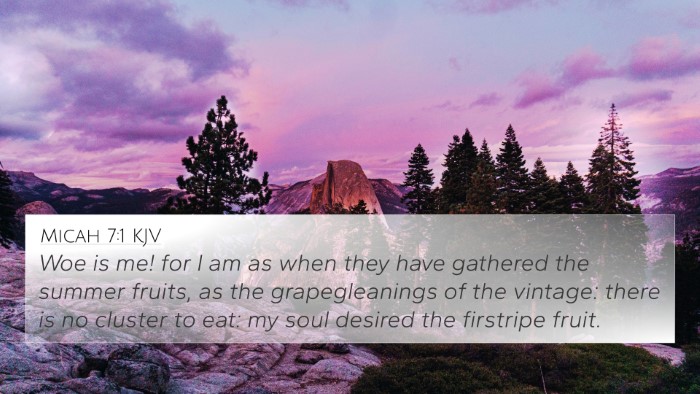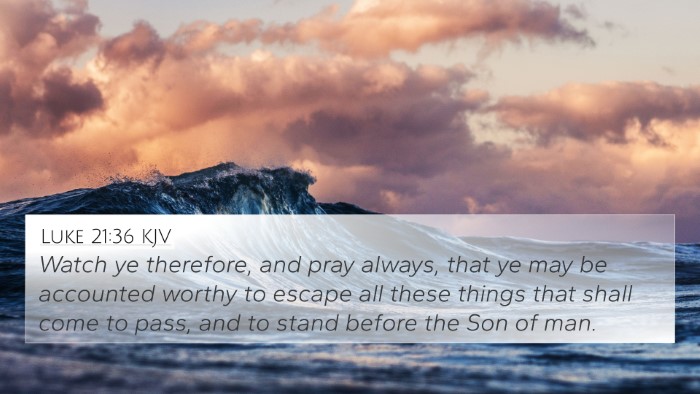Understanding Jeremiah 40:10
Jeremiah 40:10 states, "As for me, behold, I will dwell at Mizpah to serve the Chaldeans, which will come unto us: but ye, gather ye wine, and summer fruits, and oil, and put them in your vessels, and dwell in your cities that ye have taken." This passage holds notable significance as it emphasizes the response of Jeremiah and provides insights into the conditions of the people during the Babylonian captivity. Below, we summarize the meanings and interpretations from various public domain commentaries, including Matthew Henry, Albert Barnes, and Adam Clarke.
Commentary Insights
1. Matthew Henry's Commentary
Matthew Henry emphasizes the role of Jeremiah as a leader and guide for the remnant of the people who were to remain in the land. He notes that Jeremiah's decision to stay in Mizpah is critical for maintaining a level of governance and support for the inhabitants who will tend to their agricultural needs during this tumultuous time. Henry also highlights the importance of gathering essential resources, as it symbolizes preparation and resilience amid adversity.
2. Albert Barnes' Commentary
Albert Barnes provides a contextual analysis, explaining that the Chaldeans (Babylonians) would oversee the Jewish people who remained. Barnes draws attention to the practical advice given by Jeremiah on gathering wine, fruits, and oil— commodities necessary for survival and sustenance. He points out that these instructions are not just practical but also significant in representing hope for restoration and return to normalcy after the calamity.
3. Adam Clarke's Commentary
Adam Clarke focuses on the broader implications of Jeremiah's instructions, particularly the balance between despair and hope. Clarke highlights that while the people may feel despondent due to their circumstances, Jeremiah encourages them to continue their lives, cultivate the land, and prepare for the future. He notes that this reflects God's ongoing providence even during times of punishment and that working the land signifies continuity and life despite the present challenges.
Key Themes in Jeremiah 40:10
- Leadership: Jeremiah’s leadership role is critical for guiding the remnant of Israel.
- Preparation and Resilience: Gathering resources symbolizes survival tactics amidst despair.
- Hope and Restoration: The act of farming can be seen as a gesture of hope for the future.
- Divine Providence: God continues to provide for His people even in judgment.
Bible Verse Cross-References
Jeremiah 40:10 connects with several other Bible verses that provide a deeper understanding of its themes:
- Jeremiah 29:5-7: Encouragement to build homes and seek the welfare of the city while in exile.
- Isaiah 40:1-2: Comfort and hope for the people after judgment.
- Ezekiel 34:13-14: God’s promise to gather His people and provide for them.
- Matthew 6:31-33: Jesus teaches about God's provision, emphasizing seeking first the kingdom.
- Romans 8:28: Assurance that God works all things for good for those who love Him.
- Philippians 4:19: Assurance of God supplying all needs according to His riches.
- Galatians 6:9: Encouragement to not grow weary in doing good.
- Luke 12:22-26: Jesus’ discourse on the care God has for all His creation.
- Isaiah 58:10-11: Promises of guidance and satisfaction when serving others.
- Ephesians 3:20: God’s ability to do far more abundantly than we ask or think.
Conclusion
In summary, Jeremiah 40:10 invites readers to consider the complexities of faith during trying times. Through the commentaries of Matthew Henry, Albert Barnes, and Adam Clarke, we see the themes of leadership, resilience, and hope intricately woven into the fabric of God’s providential care. By exploring cross-references to other significant Bible verses, one can gather a comprehensive understanding of not only this particular scripture but also how it connects to the broader narrative of divine support throughout the Bible.

